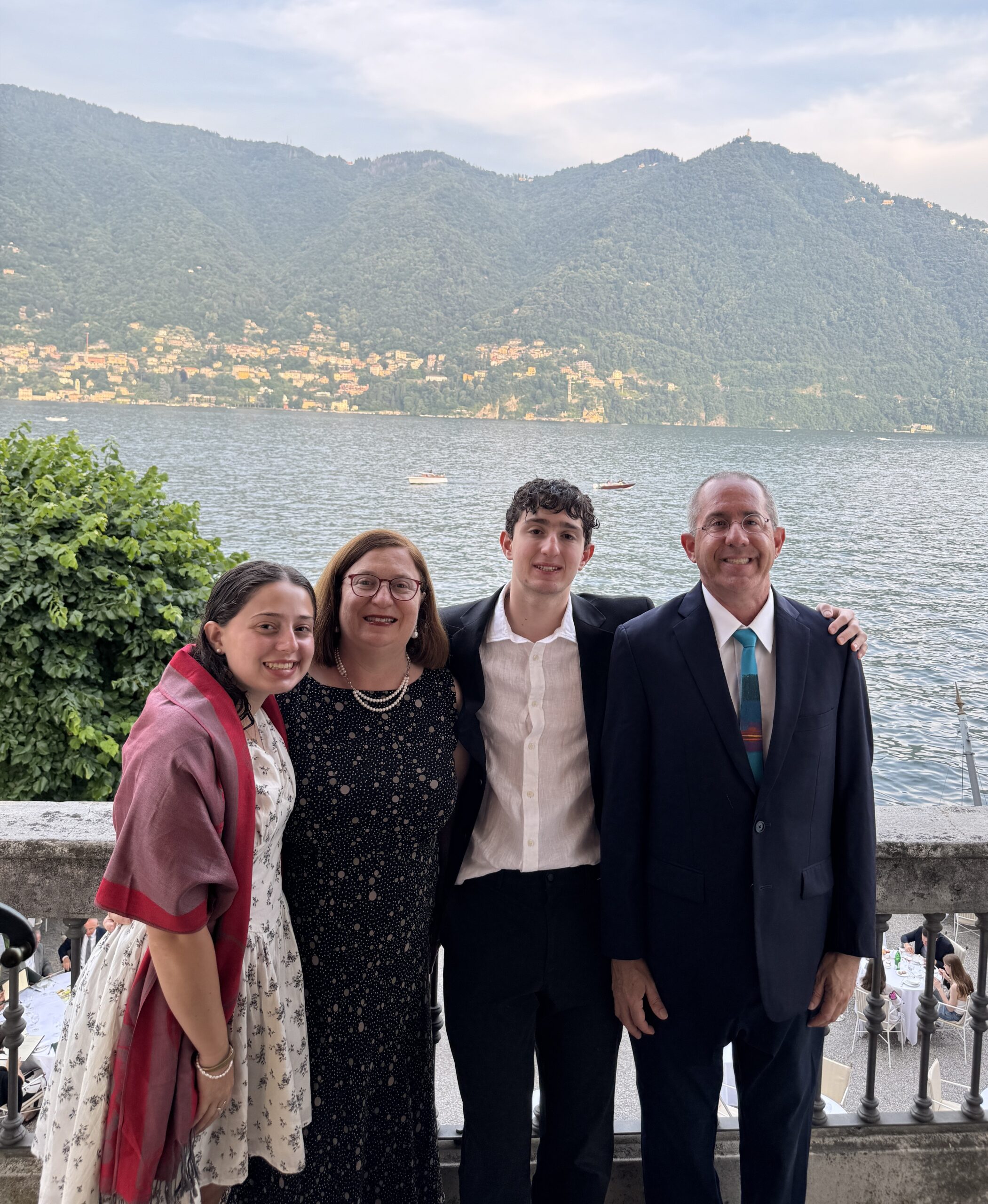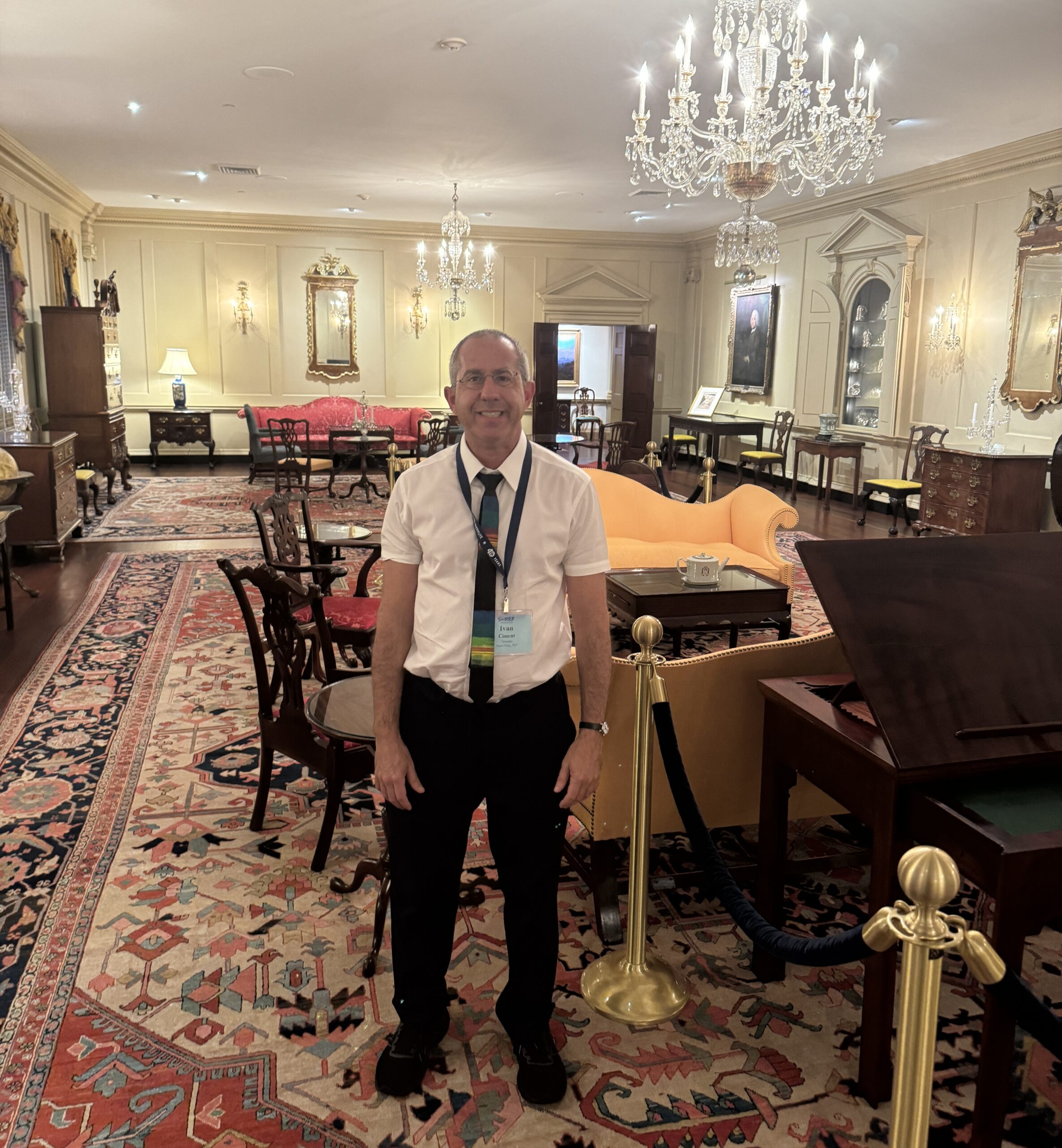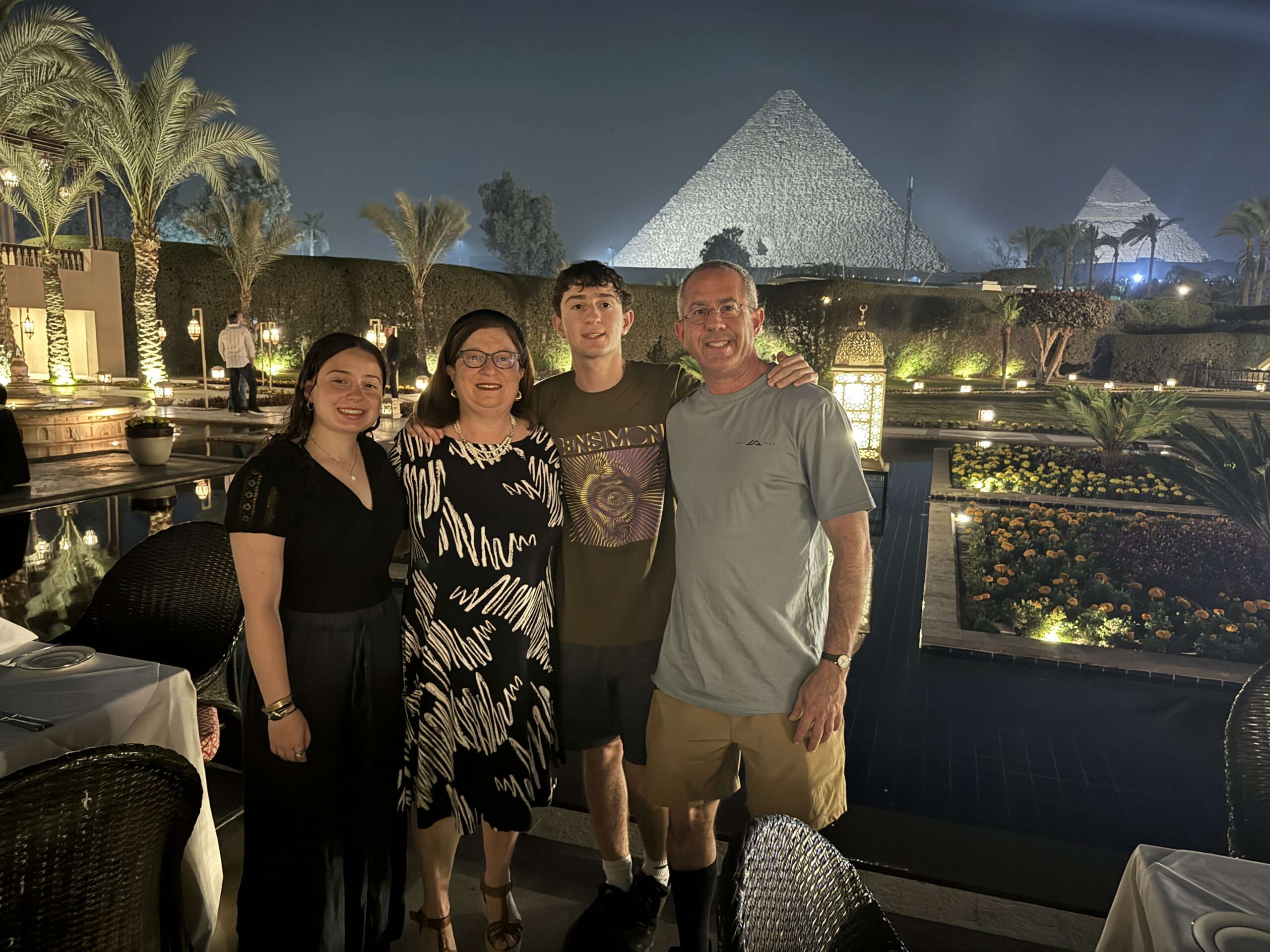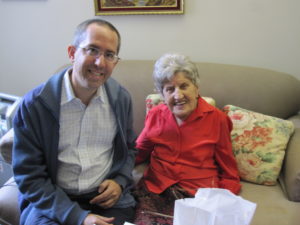
I woke up in the middle of the night to pee, went back to bed, and then it hit me. There is something profound here in this very ordinary act. First, some background:
The previous day and night I had tried to get out of my mind my visit that day with my 105-year-old great aunt. I spent 3 hours going to and from Brooklyn to spend 15 very painful minutes at her bedside. She was shriveled up in bed under a blanket, emaciated to a skeleton with black and blue all over. All that missing from this picture in my head was the barbed wire and numbers tattooed on her arm. That bed is a coffin in waiting; it is just missing the cover and lid. I’m not being melodramatic; that’s what it was to me.
She kept crying out in a low voice to no one in particular “Oy, Oy, Oy” and occasionally said “I’m Cold.” She had a private nurse, but the nurse sat the entire time on the phone making her own arrangements and it seems that every day a different nurse was being sent over, because when I would call to her phone line they wouldn’t know anything, not even how to get to the nursing home with public transport. The nurse would say it was her first day. When the nurse came to her face while I was there, she said “Who are you?”
Another nurse brought her a teddy bear next to her face for her to touch and she asked what it was.
I’m glad I didn’t come with my two children. The scene was too disturbing.
My great-aunt Fay was and remains everyone’s favorite relative. She remains of sunny disposition even under duress, and you’d have to try hard not to like her. Her nurses say they like her. That makes it all sadder that she still has most of her marbles and can tell how bad it really is. I was told that last month she recited the entire Grace After Meals by heart, which goes on for several pages and is an impressive thing for anyone to do, let alone at 105.
I recall 20 years ago when she was starting to show her age that I suggested we go away for a weekend and have some fun. She was afraid she would get sick or die and that the rest of the family would blame and hate me forever. She had hardly gone anywhere her whole life and I said that if she should be so fortunate to drop dead at a golf course in Bermuda, she ought to be happy about it. We didn’t go on the trip, and she’s spent the past 20 years waiting to die. It’s been years since she could read or listen to the radio or watch TV, and talking on the phone has been awful for several years. When she turned 100 and I asked her what she wanted on the menu for her birthday party, she told me that she couldn’t remember at the old age home what good food tasted like so she didn’t know anymore what she wanted.
She said to me from her bed that she had no clothes to wear, that everything had been stolen from her, and that there was no reason to get out of bed if you had nothing to wear. I informed her that the armoire in her room was full of clothes; she probably was in no position to get dressed. I don’t know if she heard me. She can’t hear or see hardly anything, even if you get real close to her and scream at her; I thought her hearing aids had all been taken by the staff (they cost a lot of money and the staff know that nobody can see them take them and they do take stuff). The head nurse told me she has one in reserve for special occasions, but I guess she doesn’t realize that. So visiting her means you listen to whatever stream of consciousness comes from her.
I’d had enough. I kissed her and she kissed me, and I left the room. At the nurse’s station, I asked if she was in pain. I was sure I knew what the answer was but of course the nurse said that she was not in pain and I left it at that. I didn’t protest or share any observations – it is like a journalist or some other kind of visitor parachuting into a place of great distress such as a Red Cross prisoners visit and seeing what is happening, but knowing all the while that you are going to leave it all behind and no matter what you do while you are there, you can’t change anything. At best they will humor you; at worst, you will cause more trouble. So why try to insert yourself into the picture? I asked the nurse why all this has to happen, and she said, “We don’t know the answers.”
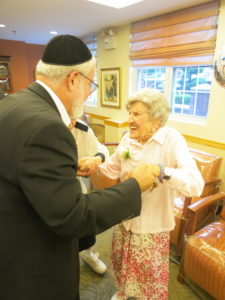
When you’re young, you fear death for its own sake. As you get older, you fear life before death. Both my grandmothers told me their greatest fear was of being a human vegetable. Both my grandmothers had lengthy ends that were painful. Both my grandmothers told me they wished they were dead. My great aunt has said that to me several times. It is hard having someone you love your whole life till that point tell you this and know that they mean it. It is something that stays seared within you and that you never forget. It’s one of the few things you remember after you’ve forgotten everything else about them.
What hit me that night was that I had just seen more action just getting up to pee than my great aunt was going to have for the entire day. Multiply that by everything else I’ve done that day. Consider what it might be to be laying in that bed for days on end, waiting for someone to visit you and then hardly even knowing who it is that is visiting you and hardly being able to talk to them or even sit up in bed.
This is not just a human interest story. It is a matter of vital public policy. People are living longer and society diverts a huge chunk of its money toward the end of life. We have convinced ourselves that ending someone else’s life is murder and that mercy killing is murder. Is it truly ethics and morality or is there a business interest of the health care industry that is paramount? I wonder if the aged person whimpering in that bed would agree with all this. In my book, prolonging this agony is not the absence of murder. We say that we are allowing people to die in dignity. We are not. In my mind, it is torture.
It is a Jewish custom to wish someone life till 120, the years that Moses lived. When you’d say that to Fay, she’d say to you “is that a blessing or are you cursing me?”
In our own way, we are dehumanizing these people by convincing ourselves that current public policy is in the right. It bothered me while I lay in bed replaying all this that when I was up close to my great aunt, I didn’t actually ask her what it was that was bothering her. If I had known, maybe I could have said something specific to the nurse on the way out. Maybe I just felt at the moment that she didn’t really hear me and was out of it and couldn’t answer. More likely I was just struck with the futility of it all and figured that even if I knew, I still couldn’t do anything about it except feel worse that I knew what was bothering her and couldn’t help. Asking her would have been so elementary, and I was looking at this through the prism of my own discomfort that I lacked enough empathy to actually care enough to know to be able to help. This is how we cope with this as observers; we are not helping make life more tolerable for those who actually live in this reality.
I wish we could figure out a better way in this society to end life. The previous month my great-aunt had a minor heart attack. The head nurse was sure she wouldn’t come back. But several times the past few years she goes to the hospital and returns. I keep hoping she won’t. I know she is suffering. I know I can’t do anything about it. I know the home makes hundreds of dollars a day keeping her alive. It costs whoever is paying roughly $300,000 a year to keep someone alive like this in New York City. It’s a huge waste for everyone – the taxpayers, the family spending down their or the estate’s money with all those savings being used up – not to mention the person sobbing through the day and night waiting for it to just end.
The funniest bus ride I ever took was one afternoon in Manhattan when a lady got on wearing a big sign saying “I’m 100 Today.” She had the whole bus in stitches as she bantered with the bus driver over the public address system. “I’m hijacking this bus and we’re all going to Atlantic City! I’ve learned a lot over these past 100 years. I could tell you all about sexual positions…” Could you just picture the scene? I went up and told her that I hope that I can be like her if I ever reach 100. But I must tell you that if I can’t, I hope over the coming years that our society figures out how to cut the cord with more realistic sensitivity to the feelings of the aged.


